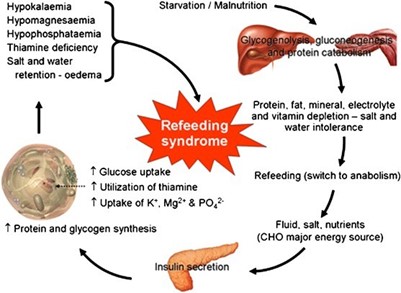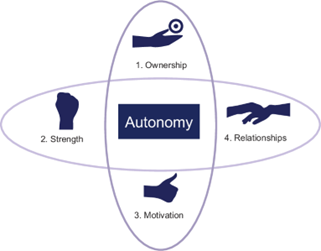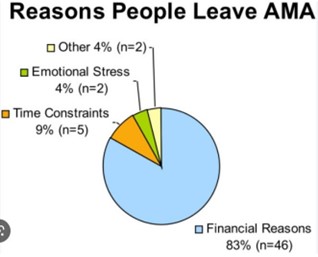Which nursing intervention has priority as a patient diagnosed with anorexia nervosa begins to gain weight after initiating therapy?
Select one:
Assess for depression and anxiety every shift
Communicate empathy for the patient's feelings to increase rapport
Help the patient balance energy expenditure and caloric intake.
Observe for adverse effects of refeeding.
The Correct Answer is D
Refeeding syndrome is a potentially life-threatening condition that can occur when a person with anorexia nervosa begins to eat again after a period of starvation. It is important for the nurse to closely monitor the patient for signs of refeeding syndrome, such as electrolyte imbalances and fluid overload, as the patient begins to gain weight.

Nursing Test Bank
Naxlex Comprehensive Predictor Exams
Related Questions
Correct Answer is B
Explanation
The ethical principle of autonomy refers to an individual's right to make decisions about their own healthcare, treatment, and life choices. As a registered nurse, it is important to respect and promote the autonomy of patients. Option b best exemplifies the implementation of the ethical principle of autonomy because it involves exploring alternative solutions with the patient and allowing them to make their own choice among those alternatives. This approach respects the patient's right to make decisions about their own care, while also ensuring that they have the information they need to make an informed decision.
Option a suggests that the nurse is imposing their own decision on the patients, which violates the principle of autonomy.
Option c may involve staying with the patient to provide support and reassurance, but it does not necessarily involve promoting the patient's autonomy.
Option d involves intervening to prevent harm to the patient, which may be necessary at times but is not necessarily an example of promoting the patient's autonomy.

Correct Answer is A
Explanation
This response acknowledges the client's request for the forms while also addressing the need to discuss the client's decision to leave treatment. It provides an opportunity for the nurse to explore the client's reasons for wanting to leave, discuss the potential consequences of leaving against medical advice, and address any concerns or fears the client may have about continuing treatment.
Option b is not appropriate because it does not address the potential risks associated with leaving treatment against medical advice.
Option c is also not appropriate because it does not acknowledge the client's request and is potentially misleading.
Option d is not appropriate because it does not address the client's reasons for wanting to leave or the potential consequences of leaving against medical advice.

Whether you are a student looking to ace your exams or a practicing nurse seeking to enhance your expertise , our nursing education contents will empower you with the confidence and competence to make a difference in the lives of patients and become a respected leader in the healthcare field.
Visit Naxlex, invest in your future and unlock endless possibilities with our unparalleled nursing education contents today
Report Wrong Answer on the Current Question
Do you disagree with the answer? If yes, what is your expected answer? Explain.
Kindly be descriptive with the issue you are facing.
